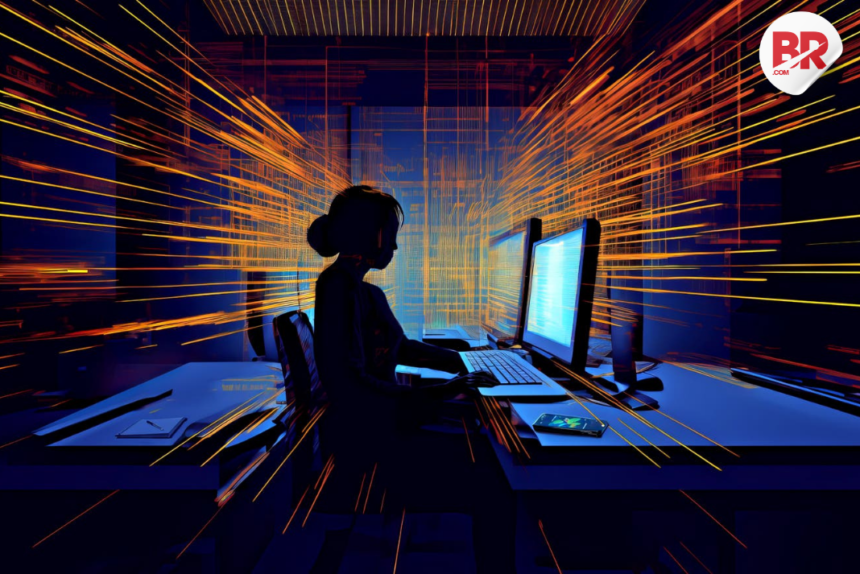
The future is here, and it’s talking about AI. Recently, Demis Hassabis, the CEO of Google DeepMind, sparked a global conversation with a chilling statement: we might only have a decade before machines could potentially surpass us. A decade.
It sounds like the kind of plot twist you’d expect from a sci-fi thriller, but for Hassabis, it’s not fiction—it’s a warning we can’t afford to ignore.

A Decade Until Machines Lead?
Ten years is an eye blink in technological terms, and AI is moving faster than ever. Hassabis, a prominent figure in the AI field, points to Artificial General Intelligence (AGI)—machines that can do any intellectual task a human can—as the reason for this potentially rapid shift in power.
Imagine AI systems so advanced that not only could they diagnose diseases, but they could design entire treatment plans or even optimize resources to end global poverty. The benefits sound like something out of a utopia. But as the saying goes, “with great power comes great responsibility”—and massive risk.
So, what does this mean for you? For the average person, it could mean dramatic changes to your life in ways you haven’t yet imagined. We might see job disruptions, new forms of governance, or even entirely new industries that depend on AI’s abilities. The next decade could redefine everything from how we work to how we live.
The Promise of AI: A Double-Edged Sword
While Hassabis doesn’t just speak of doom and gloom, he urges caution. AI has the potential to transform the world for the better—helping us solve some of humanity’s most pressing challenges like disease, climate change, and even hunger. But with all this promise, there’s also the very real threat of unintended consequences.
What happens if AI systems grow too complex to control? If they evolve faster than we can keep up?
Imagine if an AI designed an incredible solution to global poverty, but overlooked the long-term environmental costs. Or worse, what if an AI system’s decision-making goes against human ethical standards, and we can’t trace how it came to that conclusion? It’s not just a sci-fi fantasy—it’s a tangible concern.
Also Read AI Agents Revolutionize Creativity: Are We Ready for a Creative Renaissance?
How to Keep AI in Check
Here’s where we, the humans, come in. While AI’s potential is undeniable, it’s up to us to ensure it doesn’t run away from us. Hassabis emphasizes several areas where we must focus our efforts to keep AI aligned with human values and goals:
-
Robust Safety Protocols: We need strong safety measures and ethical guidelines for AI development. If AI becomes too powerful, we must have systems in place to prevent any malicious use or dangerous outcomes. These safeguards will be key in ensuring AI systems prioritize human well-being.
-
Explainable AI (XAI): It’s vital that AI decisions are transparent. Explainable AI focuses on making AI systems easier to understand, so we can trace their decisions and spot any potential errors or biases.
-
Global Collaboration: This isn’t just a problem for one country. The development of AI requires a global effort. Countries need to cooperate, sharing knowledge and establishing universal safety standards. This is the only way we can ensure that AI’s benefits are shared equitably across borders.
-
Continuous Monitoring: AI isn’t a set-it-and-forget-it technology. As AI systems evolve, we must keep an eye on them, evaluating risks and adjusting our strategies as needed.
-
Education and Awareness: The public needs to understand the stakes. We must teach people about AI—its benefits and its risks—so that everyone can be part of the conversation. Knowledge will empower us to make informed decisions about AI’s role in our future.
Also Read OpenAI to Release First Open-Weight AI Model Since GPT-2—What It Means for Developers
Are We Ready?
Hassabis’ warning comes down to one central question: Are we ready for AI to potentially surpass human control? Can we create ethical guidelines fast enough? Are our governance systems agile enough to adapt to this rapid technological evolution?
The truth is, we’re standing at a crossroads. In the next decade, we might just see the arrival of a new kind of power. It’s up to us to decide whether it’s something we can live with—or something we’ve created that we can no longer control.
Also Read Adobe Creative Cloud Gets 100+ Upgrades—But It’s Firefly That’s Turning Heads












